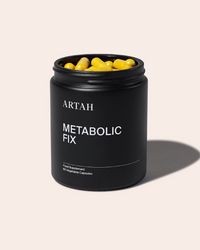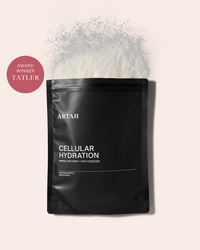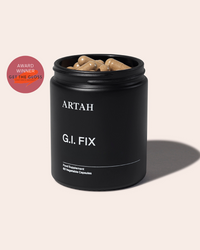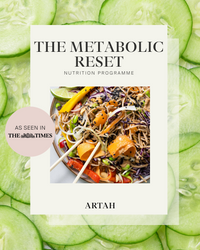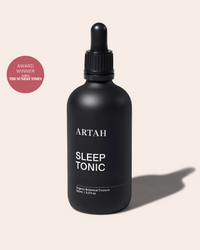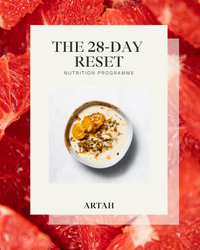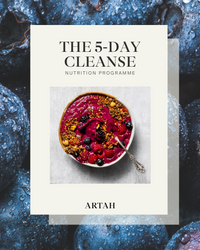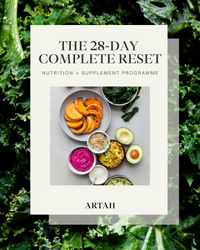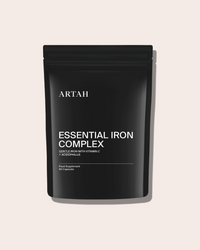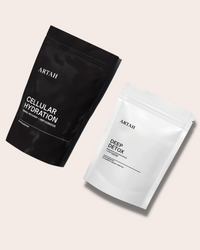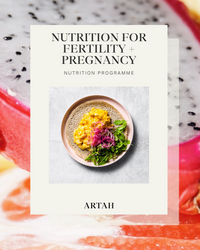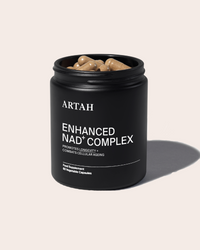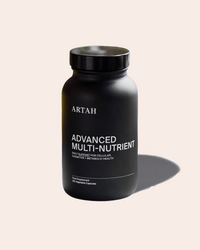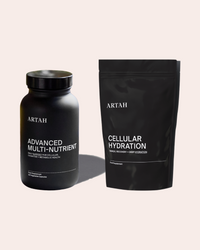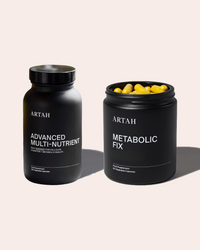6 Ways to Kick Your Sugar Cravings
We’ve all experienced the post-lunch slump or after-dinner hankering for a sweet treat, and suddenly, the magnetic pull of indulging in something sugary becomes nearly impossible to resist. Whether it's the enticing aroma of fresh baked goods at your afternoon coffee stop or the alluring array of chocolates in the cupboard, the mental tug-of-war against our sweet tooth is a universal experience. It’s not just about willpower; sugar is physically addictive. When we consume sugar, we release opioids and dopamine, a neurochemical response that parallels the effects of substance addiction. (1) So, how do we navigate the challenging terrain of sugar addiction? It’s all about implementing effective strategies to not only prevent cravings, but even make sugar less desirable (yes, it’s possible).
1. Get To Know Your Triggers
The initial step in overcoming any addiction involves pinpointing the triggers associated with the undesirable behaviour, and they’re often emotional. Studies have shown that chronic stress directly influences the onset of sugar cravings. (2) In addition to stress, boredom, procrastination and anxiety can be at play. Engaging in self-reflection to uncover the root cause of our sugar addiction provides the empowerment needed to establish a buffer between our emotions and reaching for a sweet treat. By questioning whether our hunger is genuine or if it stems from an emotional or stress-related response, we introduce a beneficial pause—a moment for our brain to interrupt this automatic behaviour. Rather than resorting to sugary foods as a coping mechanism for stress, try other dopamine-boosting activities, such as talking to a friend, taking a walk, enjoying sunlight, or doing a quick breathing exercise. For some of us, it can simply be a learned habit. If eating something sweet after lunch is a daily habit, then we condition ourselves into a daily craving. Try to proactively combat this by replacing the chocolate or sugar with something naturally sweet, like fruit, which can still satisfy the craving without perpetuating the more intense blood sugar spikes we’d get from an ultra-processed version.
2. Reduce Overall Sugar Intake
The more sugar we eat, the more we crave, and numerous studies have shown that consuming high-sugar foods can have a myriad of effects that weaken our resolve. They trigger the release of cortisol, intensifying stress levels, and have also been shown to prompt feelings of worry, anxiety, irritability and sadness, further fuelling our desire for comfort food. (3) To satiate sugar cravings without provoking a surge in stress hormones, it’s important to work on overall diet quality. In addition to increasing protein, try to reduce ultra-processed foods and excess starchy or refined carbohydrates, and increase plant diversity, healthy fats and fibre. If juice or sugar-sweetened beverages are in your regime, removing them is an easy win. Fruit juice is a source of liquid, acellular carbohydrate, so we get all the sugar and none of the fibre associated with whole fruit intake, and fibre in fruit helps reduce insulin response and slows the release of sugar into the bloodstream. It’s also a far more moderate way to consume sugar; we get exposed to a whopping 30g of sugar in an average glass of orange juice compared to just under 6g if we eat a tangerine. The good news is that when we eat less sugar, our taste perception will also change, making it less desirable, less enjoyable and more off-putting when we encounter unnaturally sweet foods. For a structured plan to help combat sugar, try The Metabolic Reset, which helps improve energy, reduce reliance on sugar, and improve metabolic control.
3. Get a Good Night’s Sleep
Our susceptibility to sugar cravings can be predetermined even before we get up for the day, which is why improving sleep is one of the fastest ways to influence appetite control and insulin sensitivity. If you’re getting less than 6 hours, it’s important to make this a focus; lack of sleep can trigger a significant shift in brain activity and steer us towards sugary indulgences. According to sleep scientist Matthew Walker, individuals deprived of sleep tend to favour calorie-dense foods, especially those rich in sugar and salt. (5) Walker explains that “sleep deprivation disrupts the brain's control centres, enhancing dopamine pathways and promoting hedonic eating.” This consistent lack of sleep also disrupts appetite hormones, with leptin (the hormone signalling fullness) decreasing by 18%, while ghrelin (the hunger hormone) increases by 28%, resulting in a 25% surge in hunger levels. (5) We know it’s easier said than done, so if you’re in a phase where increasing your total sleep time is more challenging, here’s what you can to do help.
- Try meditation naps: just 10 minutes of meditation can mimic some of the benefits of sleep.
- Support yourself with Metabolic Fix (read more about this below).
- Reduce carbohydrate intake: lack of sleep can cause our blood sugar to go awry, making us more carbohydrate sensitive and less able to exert metabolic control. Try reducing carbohydrates in the morning and at lunch, and instead, focusing on a large dose of protein (35-40g), vegetables and healthy fats. This will help promote satiety and reduce fluctuations in blood sugar. Which brings us to the next point:
4. Load up on Protein
Persistent sugar cravings between meals might be a sign that our current food choices aren’t hitting the satisfaction mark. One way to tackle this is by making friends with protein, aiming for around 30g in your first meal of the day, or even more if you’re under slept. Protein can significantly enhance feelings of fullness and keep those sugary hankerings at bay. (8) Research shows that eating above the 30g protein mark can make a real dent in reducing late-night sugar cravings. (9) A protein rich diet will also give your brain a hand in breaking free from the sugar addiction loop. It turns out that an increase in protein appears to influence the key brain regions associated with cravings, reward and memory. (10) Because it works both by increasing satiety and supporting appetite and craving signalling in the brain, loading up on protein becomes a no-brainer strategy to kick those sugar cravings to the curb.
5. Reduce Environmental Cues
Research has revealed that food advertising has a profound influence in activating automatic eating behaviours. (6) Continuous exposure to sugar-rich foods through platforms like Instagram, TV, mobile advertisements, or even in supermarkets weakens the brain's impulse control. (7) To stop environmentally induced sugar cravings, consider refining your online experience by minimising exposure to indulgent food content on social media or diversifying your television choices away from baking shows. It’s also helpful to create a sugar-free environment at home to set yourself up for success. Removing candies, biscuits, chocolates, and other high-sugar foods can make all the difference to your resolve, adhering to the adage: out of sight, out of mind.
6. Support Yourself with Supplements
Adding in a blood sugar support like Metabolic Fix can make all the difference if you need help to combat sugar cravings and balance blood sugar. It blends Berberine, Cinnamon, Alpha-lipoc Acid, Green Tea, Inositol and other phytonutrients with proven blood sugar benefits. Berberine, one of our favourites, is a powerful herbal compound shown to support in metabolic health, improve insulin sensitivity, reduce blood sugar, and improve fat oxidation. It exerts its metabolic effects primarily through the activation of AMPK, a central regulator of energy, which is involved in insulin signalling, mitochondrial biogenesis, food intake and bodyweight. Chromium is another effective trace mineral that is crucial to blood sugar control and epidemiological studies show that people struggle to meet the RDA. (11) If stress is one of your triggers, also consider Enhanced Nootropics, which blends cortisol-reducing Ashwagandha with the B complex vitamins, Magnesium, and 5 HTP, all of which are important in mediating mood, energy metabolism and cravings.
And remember, embracing the occasional indulgence is perfectly fine…
Welcoming the occasional indulgence is perfectly fine, and in fact, far more enjoyable if you’ve cultivated a healthy, balanced relationship with food. Instead of stressing about giving in to a sugar craving and what it may mean for your weight, it’s important to connect reducing sugar with a broader, more purpose led goal. Whether it’s tied to improving health, focus, mood, energy, performance, or even to model positive behaviours for your kids, finding a more positive motivation can make all the difference. When our overarching objective outweighs the allure of momentary indulgence, the craving naturally takes a backseat in our mind.
Disclaimer:
This article is for educational purposes only and the implementation of the theories and practices discussed is at the sole discretion of the individual. All information given is not a substitute for medical advice, diagnosis, or treatment. If you have any concerns about your health, you should speak with your physician.
References:
1. Avena NM, Rada P, Hoebel BG. Evidence for sugar addiction: behavioral and neurochemical effects of intermittent, excessive sugar intake. Neurosci Biobehav Rev. 2008;32(1):20-39.
2. Chao A, Grilo CM, White MA, Sinha R. Food cravings mediate the relationship between chronic stress and body mass index. J Health Psychol. 2015 Jun;20(6):721-9.
3. Zänkert, S., Kudielka, B. M., & Wüst, S. (2020). Effect of sugar administration on cortisol responses to acute psychosocial stress. Psychoneuroendocrinology, 115, 104607.
4. Giuntini EB, Sardá FAH, de Menezes EW. The Effects of Soluble Dietary Fibers on Glycemic Response: An Overview and Futures Perspectives. Foods. 2022;6;11(23):3934.
5. Walker, M. Why we sleep. Penguin Books. 2018
6. Harris JL, Bargh JA, Brownell KD. Priming effects of television food advertising on eating behavior. Health Psychol. 2009;28(4):404-13.
7. Reichelt AC, Westbrook RF, Morris MJ. Integration of reward signalling and appetite regulating peptide systems in the control of food-cue responses. British Journal of Pharmacology. 2015;172(22):5225-38.
8. O’Keefe J H, Gheewala N M, O’Keefe J. Dietary Strategies for Improving Post-Prandial Glucose, Lipids, Inflammation, and Cardiovascular Health, Journal of the American College of Cardiology. 2008; 51(3):249-255
9. Leidy HJ. Increased dietary protein as a dietary strategy to prevent and/or treat obesity. Mo Med. 2014 Jan-Feb;111(1):54-8.
10. Leidy HJ, Lepping RJ, Savage CR, et al. Neural responses to visual food stimuli after a normal vs higher protein breakfast in breakfast-skipping teens: a pilot fMRI study. Obesity (Silver Spring) 2011;19:2019–2025
11. National Institutes of Health Chromium Fact Sheet for Professionals: https://ods.od.nih.gov/factsheets/Chromium-HealthProfessional/#h6






